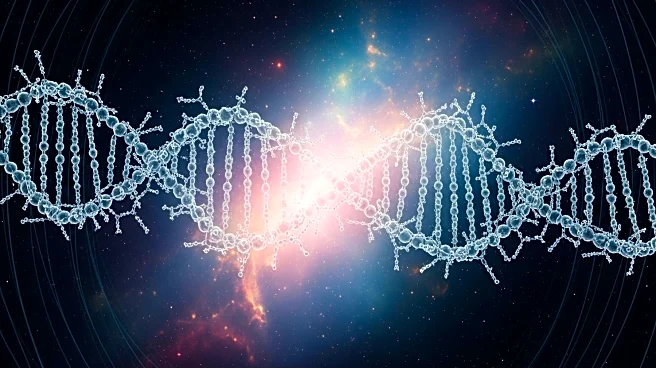What's Happening?
Chemists at University College London have successfully replicated a critical moment in the creation of life by joining RNA and amino acids under conditions similar to those on primordial Earth. This experiment, led by chemist Matthew Powner, demonstrates how RNA might have first come to control protein synthesis, a fundamental process for life. The study utilized thioesters, high-energy compounds thought to be abundant in early Earth, to facilitate the binding of amino acids to RNA. This breakthrough unifies two prominent theories about the origin of life: the RNA world hypothesis and the thioester world hypothesis.
Why It's Important?
Understanding the origin of protein synthesis is crucial for comprehending how life began on Earth. This research provides insights into the molecular interactions that could have led to the emergence of life, potentially guiding future studies in synthetic biology and the development of life-like systems. The ability to replicate such processes in a laboratory setting could pave the way for advancements in biotechnology, offering new methods for creating complex biological molecules. This could have significant implications for medicine, agriculture, and environmental science.
What's Next?
The next steps involve determining whether RNA can preferentially bind to specific amino acids that would facilitate the emergence of genetic code. This research could lead to a deeper understanding of the molecular mechanisms that underpin life, potentially allowing scientists to create self-replicating molecules from simple components. Such advancements could revolutionize fields like synthetic biology and genetic engineering, offering new possibilities for creating life-like systems and understanding the fundamental processes of life.









